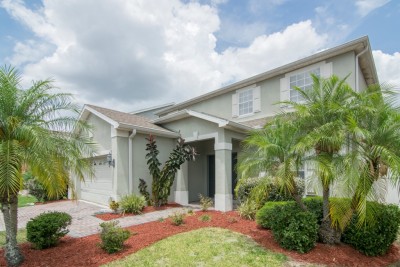Understanding REO
Real estate-owned homes are transferred to the ownership of a mortgage lender or investor for several reasons. First, properties do not automatically become an REO after a lender owns it, but typically happen out of the foreclosure process–when a homeowner fails to pay their mortgage.
However, foreclosure is not the only way that property falls under REO. For example, the property may become REO after the homeowner moves out or passes away by the end of a reverse mortgage. When the heirs to the property are unwilling or unable to pay off the remaining mortgage balance or sell the property themselves, the property will be given back to the investor or lender.
To recoup losses on the property, the investor or lender will initially sell the home at an auction. However, properties don’t sell well at auctions because, at foreclosures, homeowners let go of properties because they owe more to the lender than the house is worth. This often happens during market downturns.
Once the lender fails to sell the property at an auction, he takes ownership of the home and markets the real estate-owned (REO) property to recoup losses. This is the time when an REO property is listed on the books for a while.
Where to Find REO Property Listings
To begin your search, you can check out publicly available listings from the Department of Housing and Urban Development (HUD), the Department of Veterans Affairs (VA), the Department of Agriculture (USDA), and the Internal Revenue Service (IRS). You may also look for REO properties on government-sponsored entities (GSE).
Large banks also have their listings where you can view REO properties they own. Typically, banks make a loan or hold onto the property for a few decades instead of selling it to mortgage investors or adding it to mortgage-backed security (MBS).
Is an REO Property a Good Deal?
An REO property has its fair share of advantages and disadvantages. After all, these properties were let go by homeowners due to several reasons. But this doesn’t mean that all REO properties out there are not good deals.
REO homes are usually priced low, so if you purchase a home with a tight budget, this option may be great for you. Lenders want a hassle-free transaction and aim to create competition among potential buyers, so they will likely list the property at a low price, wait for multiple offers, and choose the least risky option.
On the other hand, buying an REO property at a low price may also mean it needs a few repairs here and there. Lenders don’t spend money on property repairs to minimize more losses. They wouldn’t spend more money on a property than they already have.
Conclusion
REO properties are an excellent option for buying a property without breaking the bank. Just make sure that you can allocate money to potentially needed repairs and that you still get a good deal out of it.
You can learn more about REOs from our listing experts at Orlando REO Professionals. We offer property management services in Central Florida, and we update our REO listings weekly. We can help you find your next property. Get in touch with us today and see how we can help!

